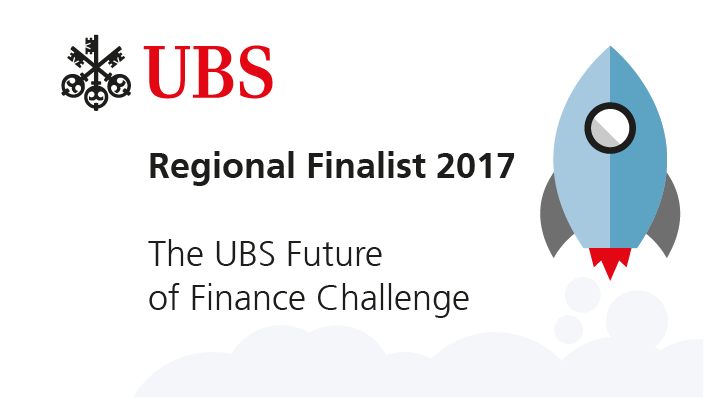Artificial Intelligence in Healthcare: The Future of the Medical Industry
This article was written by Grant Goldstein, a Financial Analyst at I Know First
“AI could play a big role in supporting prevention, diagnosis, treatment plans, medication management, precision medicine and drug creation” – Bruce Lang
(Source: PixaBay)
Highlights:
- AI Will Transform Healthcare
- Google and IBM are Leading the Race
- I Know First Ventures into Predictive Healthcare
The Revolution of AI in Healthcare
Artificial intelligence, the capability of a machine to reflect human behavior in an intelligent manor, has the opportunity to revolutionize healthcare. These algorithms and deep learning processes evaluate and study data, utilizing their findings to apply to problems. When the data is inputted into the algorithm, the information is more understood throughout time and the AI is able to provide exponentially better feedback. Artificial intelligence can, for example, exam a patient medical history and predict the likelihood of that individual having a certain disease. Such uses are for hospital management, drug discovery, lifestyle monitoring, patient risk analysis, diagnostics, and more. The market is expecting to grow to 19.5 billion by 2025.
AI in healthcare will be able to provide telemedicine, the use of technology to give clinical healthcare from any distance. Via the internet, an AI will be able to examine users health and give doctorate level recommendations, eliminating the need to leave your home. Babylon Health is a leader in this movement, a company who’s AI has a success rate 9% higher for passing the general practitioner exam compared to doctors. The CEO stated “Babylon’s latest artificial intelligence capabilities show that it is possible for anyone, irrespective of their geography, wealth or circumstances, to have free access to health advice that is on-par with top-rated practicing clinicians.” Telemedicine would deeply cut the cost of healthcare and allow it to be more accessible to all.
For now, the presence of AI in the healthcare industry does not mean that doctors will be phased out completely. The growing healthcare partnership between machine and man is meant to assist the medical field in their work, making their job more effective. With the utilization of all information, AI helps make timely, accurate, and cost saving decisions that doctor’s can further access. However, as time goes on, more hospitals may require less money to pay a doctor. Since AI will limit the need for the rolls doctors have, hospitals will not always need a doctor on sight for simple examinations and can have nurses using the AI. For example, in recent studies, AI was able to detect tuberculosis in patients by examining X-Ray photos. Researchers at Thomas Jefferson University Hospital trained the AI by giving it over 1000 X-Rays to study. Amazingly, the AI had an accuracy rate of 96% for detecting TB, a promising sign for the future of medicine. So, a nurse would be able to operate such a machine without the need of a doctor present and yield higher accuracy results for disease detection.
Medical research will be revolutionized with the help of artificial intelligence in the coming years. With the ability of AI to collect vast amounts of data to find patterns and make forecasts, the cost of medical research will significantly drop. The Institute of Cancer Research is already implementing AI into their research. Their canSAR database digests genetic and clinical data from patience and uses AI to target new cancer drugs. Thus, as time advances, research findings will be in abundance as the machine will vastly help findings and allow a team to continue working for less money.
Researchers at Oxford Hospital developed AI that scans for heart disease and lung cancer. The AI diagnosis of heart disease is 80% more accurate than doctors and cuts costs by 50%. BBC News reported that if both the U.S. and U.K. implemented this AI, it would cut costs by $13.5 billion. This machine is helping doctors save money and evaluate medical patients better; no doctor is perfect at diagnostics, so having this extra tool for certainty is cost effective and life saving. Thus, AI helps with cost, access of care, speed, and new methods of diagnosis.
The day to day lives of individuals are better understood within algorithms. Think about having an AI on you at all time through, lets say, an app. The AI understands your health behavior, as it is with you for most of the day, and processes that information to promote a healthier lifestyle; AI provides more accurate guidance and feedback as it understands and interprets the data more accurately than a doctor ever could.
As time progresses, the hardware needed to produce AI will rapidly decrease. This will cause an exponential increase in AI, furthering the research done with the technology and the more it will be implemented across the healthcare sector.
Rising Stars in Healthcare AI
Google’s DeepMind Health is making prosperous strides within the AI healthcare industry. The company is looking to implement the AI technology to assist in the services of patients, nurses, and doctors. The goal is to give patients the quickest and most accurate results from hospital tests.
Currently, the company is testing whether or not the DeepMind AI can exam and read OCT scans better than a doctor at London’s Moorfields Eye Hospital.
Another goal of DeepMind is to get an AI to think exactly like a human. Although that may sound impossible, they’re already making significant strides. Recently, the AI established the ability to create 3D imaging from 2D photos. This is mirroring the human being as the mind tends to make assumptions of the surroundings its in.

(Source: Wikimedia)
IBM created Watson health to examine the most pressing health challenges through data studied by AI. IBM Watson has begun a project titled WatsonPaths, partnered with the Cleveland Clinic Lerner College of Medicine of Case Western Reserve University. WatsonPath’s technology examines information from medical records and uses that to help physicians make more accurate decisions. Watson reviews and stores all medically available information to use for its diagnostic. IBM is working in more than 230 hospitals and health organizations, helping professionals and researchers make more informed decisions.
This past week, IBM launched a new app called Sugar.IQ. The app uses Watson AI to help diabetes users track and meet their health goals. Watson personalizes data for each user, creating a strong request to get them to reach their health needs.

IBM Watson (Source: Wikimedia)
I Know First Steps Into Healthcare
On June 27th, I Know First held a meeting with KST Medical Group. I Know First’s CEO, Yaron Golgher, and KST Medical Chairman, Chong Han, sat down at the I Know First Tel Aviv office to discuss the groundbreaking AI based upcoming partnership between the two companies. I Know First and KST Medical Group would be working together to utilize the I Know First machine learning algorithm to predict heart disease and heart attacks in patients.
The I Know First Algorithm predicts the likelihood of a patient developing a cardiovascular disease by examining the individual’s medical history. Anonymously, the AI will exam medical profiles of almost 270 million people from the top 1,000 Chinese hospitals in order to properly learn and forecast the chances of such disease occurring.
Once the disease itself is tested, the AI learns and will implement more advanced forecast. For starters, if it detects the potential for a certain heart disease, it will move forward and access the possibility of experiencing a fatal cardiovascular event. Once enough data is studied, the I Know First Algorithm will be able to forecast a multitude of health issues, such as life expectancy.
This is such a monumental partnership due to the fact that one in five people in China have a cardiovascular disease. Unfortunately, this is the biggest killer of people in China. The ability for I Know First’s deep learning algorithm to detect the potential of such a disease will allow individuals to take precautions and change their lifestyle to minimize or delay the onset of the disease.
Conclusion
AI is going to transform the healthcare industry. The huge advantage of algorithmic interpretation of data will not only assist doctors and researchers with assessments, but help patients get the care they deserve. Individuals will be better off as their diagnosis will be quicker and more accurate than ever before. One of the fundamental upcoming players in the AI healthcare industry is I Know First. The company is implementing it’s highly successful asset forecasting algorithm and putting it to the healthcare industry, potentially saving millions from a wide variety of diseases. The promising future of I Know First and the entire healthcare industry utilizing AI is going to transform the way we live our lives. In the future, AI will be much cheaper than it is today, causing implementation across many different sectors. As it gets cheaper, more research will be done on its accuracy, and the more healthcare sectors will include it as they see positive results. I believe that doctors won’t be phased out any time soon, but demand will significantly decrease in the coming years. Since hospitals are a business, they would rather use a one time cost machine for diagnosing patients rather than pay doctors hundreds of thousands of dollars to give less accurate results.















